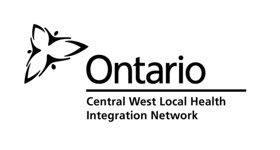 Central Intake: 905-451-2123 Central Intake: 905-451-2123
Agencies may
click here for a Central Intake referral form.Individuals with serious and
persistent mental illness may need more support than a regular
doctor’s visit can provide. CMHA/Peel’s Access to Recovery
Mental Health Case Management recognizes this need and aims to
achieve three outcomes for the client:
- Clients have a life skills coach, in their own environment,
who works with them and, where desirable, their family and
friends, to achieve their goals and satisfy their needs –
housing, income and activities of daily living
- Clients have someone to help them navigate the social and
community services system and link them to services
- In terms of their mental illness, clients have someone who
helps them understand and manage their illness and achieve
recovery
Case managers meet clients in the community or at their home.
After an initial assessment to determine suitability for the
program, the case manager does a more thorough assessment
that includes:
- Developing a therapeutic relationship with the client
- Gathering pertinent demographic and personal information
- Establishing a crisis plan with each client, with updates as
needed
- Determining need for change through ongoing evaluation
regarding goals, discharge, etc.
- Monitoring client’s symptoms and initiating interventions to
stabilize illness
- In partnership with client, establishing goals for recovery
Case managers:
- advocate for clients by assisting them with accessing
and sustaining their entitlements, e.g. social assistance,
housing, leisure activities, legal system, education,
employment, etc.
- coordinate services by completing Community Support
Agreements to avoid duplication of services and assist clients
to effectively utilize community services, and develop and
maintain effective working relationships with other service
providers
- refer clients to appropriate community services
- provide practical application of life skills training
Prior to Discharge, a transition plan is established
with the client, which may include referral to other agencies or
CMHA programs, and the option to evaluate re-entering the program.
 |